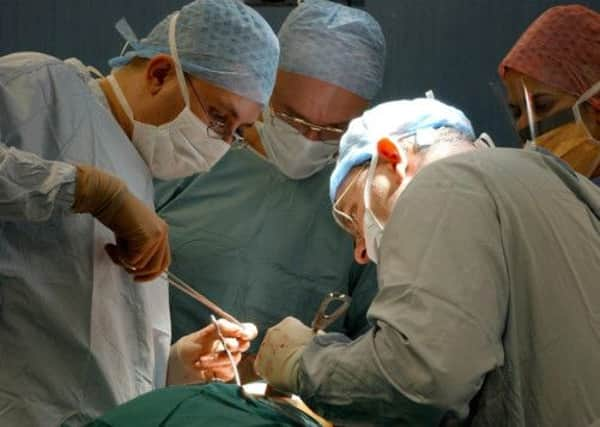Need to raise awareness of a deadly disease on the rise


Ben Spink has lived with the realities of kidney disease since he was a child.
He was 11-years-old when he first noticed something was wrong and after a course of antibiotics, various tests and consultations he was eventually diagnosed with Alport’s Syndrome.
Advertisement
Hide AdAdvertisement
Hide AdThe genetic disease leads eventually to kidney failure and eight years later Ben, who lives in North Lincolnshire where he works in farming, had become dependent on dialysis while waiting for a life saving transplant.
“There are two different types of dialysis, one you can do at home overnight and one which you have to go into hospital for,” says Ben. “I managed for a while on the first until I got a quite serious infection. After that I had to go into hospital in Hull three times a week and it was a six hour round trip.
“I wanted to keep as much normality in my life as possible, but it was difficult. Dialysis leaves you feeling pretty drained and I wasn’t able to lift anything. I was fortunate in one of the farms I was working on at the time was really accommodating and found me work I could do.”
Three years after going on to dialysis, Ben underwent a successful kidney transplant at the Leeds General Infirmary and, while his health may never be 100 per cent, he has returned full-time to farming.
Advertisement
Hide AdAdvertisement
Hide Ad“The disease didn’t just affect me, it affected my whole family,” he says. “There are a lot of dietary restrictions, so it influences everything from what you have for breakfast to whether you can have an extra cup of tea. It really does rule your life.
“By the time I had the transplant I’d forgotten what normal was. There are still times now when I struggle to get through the working week, but apart from having to go back to hospital every three months for a check up I’m doing a whole lot better than I could have been.”
Ben knows he was one of the lucky ones. Diagnosed early, it meant he had the best chance of successful treatment.
However, despite being one of the UK’s fastest growing illnesses, a new study commissioned by Kidney Research UK shows most people are unaware of the disease.
Advertisement
Hide AdAdvertisement
Hide AdWhile kidney disease can affect anyone at any age, almost half of the 2,000 people surveyed by the charity said they thought the illness posed no threat to them. Of those who already suffer from diabetes, high blood pressure and vascular disease – all leading causes of kidney disease – only a tiny fraction believed that they were at risk.
“This survey highlights a deeply worrying lack of awareness in this region when it comes to kidney disease and goes someway to explain why it has reached such epic proportions,” says Sandra Currie, chief executive of Kidney Research UK. “Even people who are at significantly increased risk from the illness because of preexisting conditions appear to be completely in the dark.
“With the number of patients who need treatment for kidney failure rising by more than four per cent each year and very limited funding available for research into new treatments, we have all the makings of a very real public health crisis.”
More than three million people in the UK are at risk from chronic kidney failure, while 51,000 require some form of renal treatment for the disease – a 20 per cent increase since 2006. If caught early enough, the damage done by some forms of kidney disease can be slowed, stopped or even reversed, but there are fears that many sufferers are slipping through the net.
Advertisement
Hide AdAdvertisement
Hide Ad“Because it displays few symptoms, many patients go undiagnosed until their kidneys fail completely which is why it is known as a silent killer,” adds Sandra. “The only way we can reverse the trend is by making more people aware of the disease.”
The NHS currently spends £1.45bn treating kidney disease in England alone – the equivalent of £1 in every £77 spent by the organisation and more than the annual cost of breast, lung, colon and skin cancer combined.
In a bid to both reduce the cost to the NHS and improve the chances of survival for sufferers, Kidney Research UK is now rolling out a special package of diagnosis and treatment aids for doctors and nurses.
“More funding is also needed if we are to help patients by finding more effective treatments and ultimately, a cure for kidney disease,” says Sandra. “At the moment we turn down four out of every five proposals for new projects because we don’t have enough money to support them. If we are to improve people’s chances of survival that has to change.”